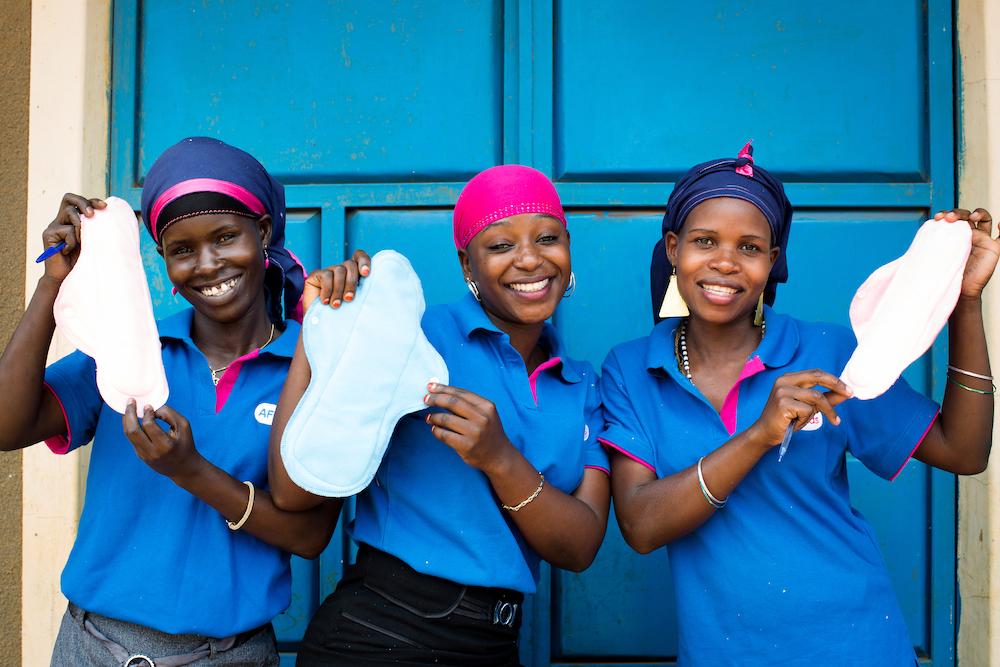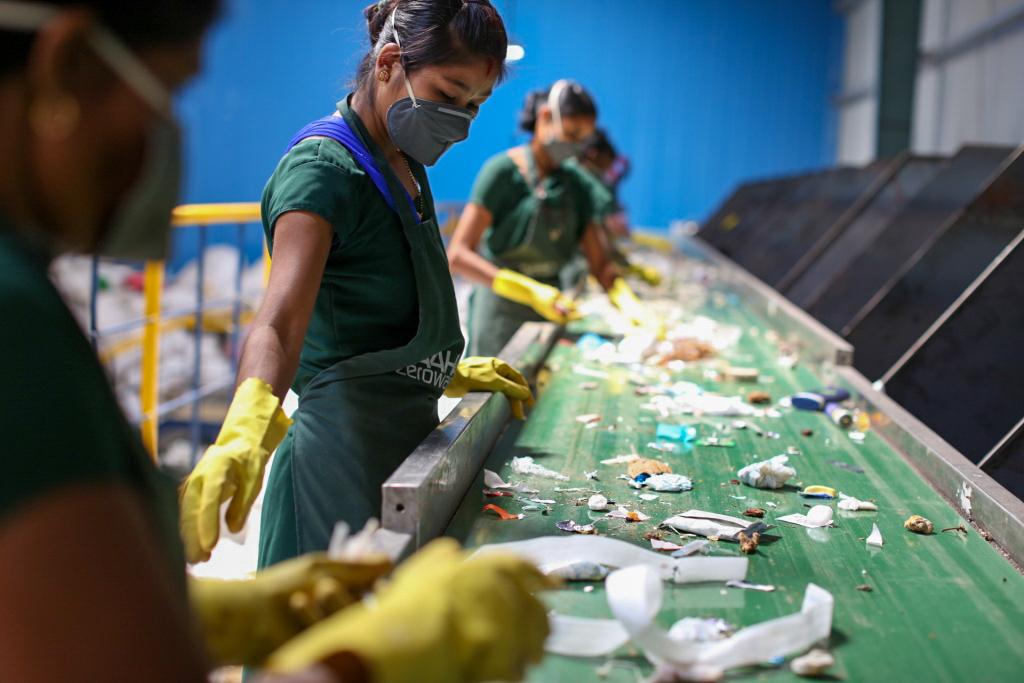Business Continuity and Protecting the BoP during COVID-19
During this time some of Business Call to Action (BCtA) members have adapted their businesses while others are looking at what will happen post-COVID and how to best continue engaging low-income populations in their value chain.
In Uganda, BCtA member AFRIpads not only employs low-income populations, but their customers are low-income women and girls dependant on the reusable menstrual kits the company sells across Africa.
“It is essential for our manufacturing to continue to ensure this uniquely gendered need of women and girls can be met,” said co-founder Sophia Grinvalds, as access to menstrual products decreases and cost of purchasing them increases, yet the need to manage periods with dignity is very much there.
During the initial phase of the pandemic the company enforced guidelines set out by the Ministry of Health of Uganda in the workplace and provided information for employees in local languages to ensure they could protect their families and community.
However, an overnight lockdown and the ruling that essential factory workers had to live on-site to continue work shut the AFRIpads factory down for two weeks.
Almost 90 percent of the company’s 200 workers are low-income women and vulnerable to risk and interruptions of businesses during the pandemic. “We have to be able to preserve the livelihood of our team… we had to be creative and needed to pivot and respond,” said Grinvalds, who understands the challenges of having workers from the bottom of the pyramid (BoP) who are dependent on employment with limited savings and safety nets to fall back on during emergencies.
As a solution, the team was able to set up temporary housing for factory workers and after two weeks workers returned.
“The reality is these are challenging times for small and medium companies, especially those with a strong social impact focus to their work,” said the co-founder. “There is a huge amount of flexibility and empathy needed in how we respond to this crisis, the situation is changing for everyone on a daily basis.”
Like AFRIpads, Indian waste processing company Saahas Zero Waste undertook initiatives to ensure the safety of their workers, including providing PPE, awareness on hygiene standards at home and “social distancing” protocols at work.
While lockdowns are making it difficult for daily wage earners and low-income workers to make ends meet, Saahas Zero Waste’s employees had certain safety nets.
“We are taking ample steps to safeguard the interests of our waste workers. Thanks to a formal approach in waste management, Saahas Zero Waste is able to support our field staff in these difficult times,” said Arun Murugesh, Regional Director of Saahas Zero Waste.
Looking ahead after COVID-19 there may be opportunities to transform the waste management industry in India, where much of the sector is made up of informal labourers. Many of these waste workers operate without health and safety standards and vulnerable people living at the BoP are exploited by the informal sector.
“At Saahas Zero Waste we observed that formal full-time employment ensures a stable workforce. As factories slowly ramp-up their workforce, we encourage them to incentivising returning workers with full-time employment. A strategic formalization of end-to-end waste management supply chain will make it robust and reliable,” said Murugesh.
The company is also making use of relief plans announced on taxation and loan repayments to keep business going during uncertain times and continue engaging with low-income communities.


